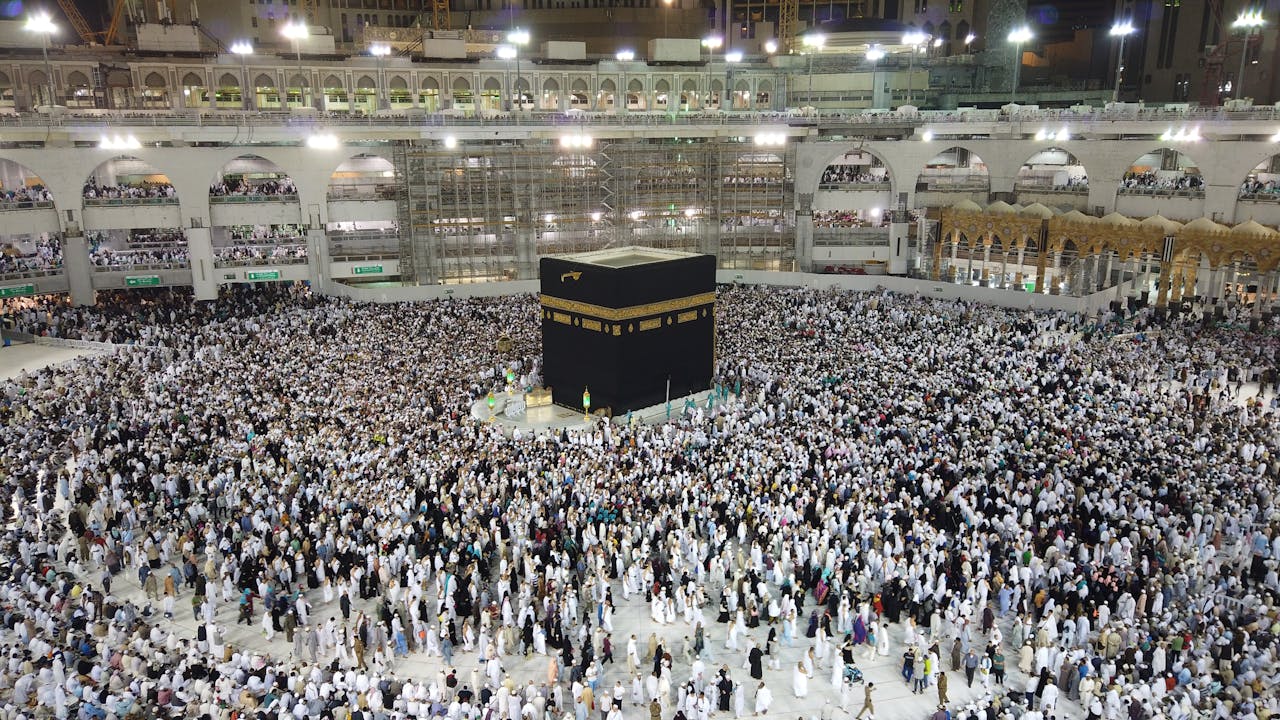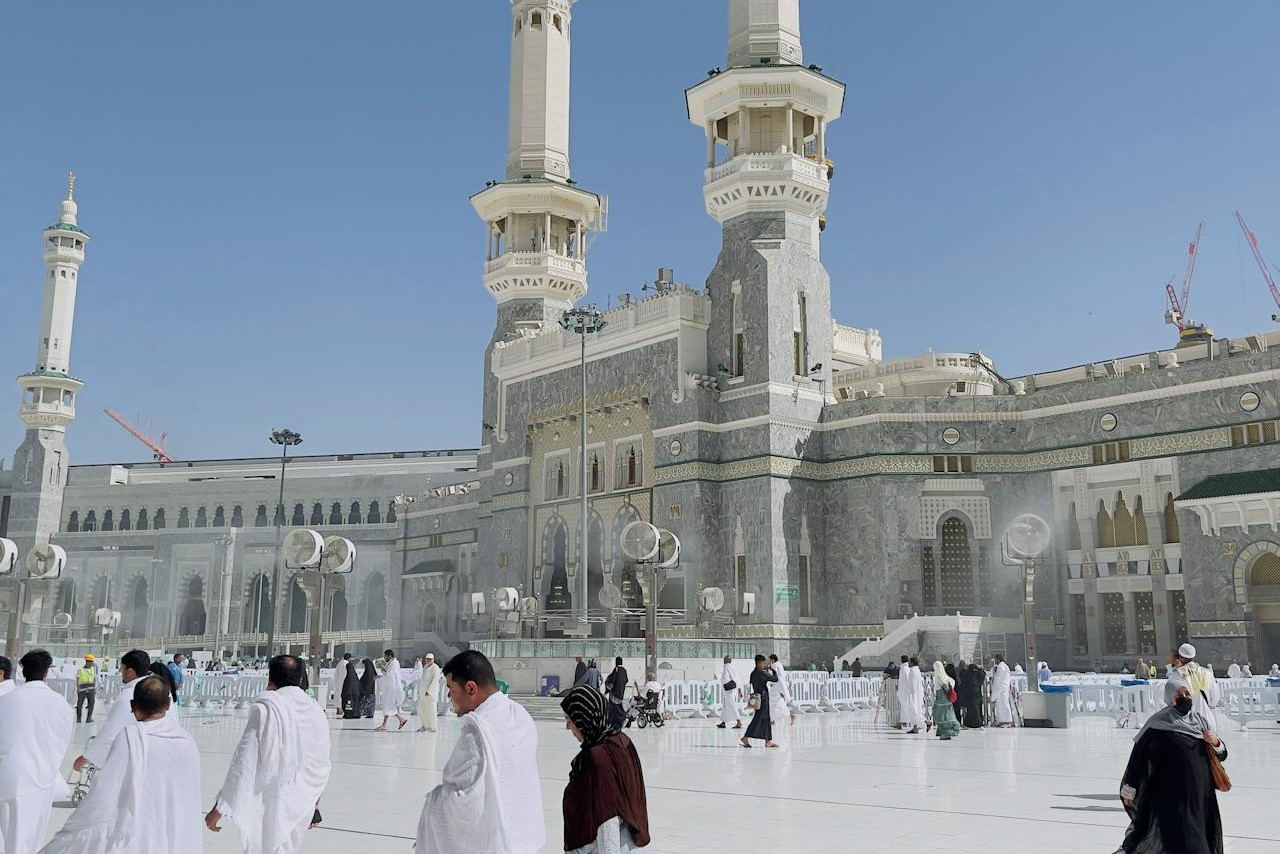What are the things you must know before Umrah?
Umrah is a profound spiritual journey that holds immense significance in Islam. Unlike Hajj, which has specific dates in the Islamic lunar calendar, Umrah can be performed at any time of the year. For many Muslims, undertaking Umrah is an opportunity to cleanse the soul, seek forgiveness, and renew one’s faith. This guide provides a comprehensive overview of what to know before Umrah, ensuring that pilgrims are well-prepared to perform this sacred rite with ease and devotion and save themselves from penalties.
Things to Know Before Umrah
Understanding the different categories of actions to know before Umrah is crucial for any pilgrim. These actions are divided into three main categories:
- Fard (Obligatory) Acts: These fundamental acts must be performed for Umrah to be valid.
- Wajib (Mandatory) Acts: These acts are compulsory and must be performed, though missing them does not invalidate Umrah but requires a penalty (dam) as sacrificing a goat in the vicinity of Haram.
- Sunnah (Recommended) Acts: These are actions recommended by the Prophet Muhammad (peace be upon him) that every pilgrim must know before Umrah to enhance the spiritual experience of this journey.
Fard / Obligatory Acts in Umrah
Wearing the Ihram with Niyyah
The journey of Umrah begins with wearing the Ihram, a simple white garment symbolizing purity and equality before Allah. This act is accompanied by making the niyyah (intention) to perform Umrah. Pilgrims should enter the state of Ihram from one of the designated Miqat (entry points) and recite the Talbiyah, expressing their readiness to perform Umrah.
Tawaf al-Umrah
Tawaf, the act of circling the Kaaba seven times in a counter-clockwise direction, is a core component of Umrah. Pilgrims begin Tawaf by aligning themselves with the Black Stone (Hajr al-Aswad) and proceed to circle the Kaaba, reciting prayers and supplications. Tawaf symbolizes the unity of believers in the worship of the One God.

Wajib / Mandatory Acts in Umrah
Entering into Ihram from the Miqat
Entering Ihram from the Miqat is a mandatory act. There are five Miqat locations, referring to the designated points at which pilgrims must enter the state of Ihram. Failure to do so necessitates a penalty.
Performing Tawaf with Ablution
Performing Tawaf in a state of ablution (wudu) is mandatory. Pilgrims must ensure they are in ritual purity before beginning Tawaf.
Walking During Tawaf
Walking during Tawaf is obligatory unless there is a valid reason preventing it, such as illness or physical disability. Leaving this mandatory act without a legitimate reason necessitates a penalty as sacrificing a goat.
Praying Two Units of Prayer After Tawaf
After completing Tawaf, pilgrims must pray two units (rakats) of prayer facing the Kaaba with the Maqam Ibrahim (Station of Abraham) in front. If the area near the Maqam Ibrahim is crowded, one may perform these Rak’ahs anywhere in the Masjid al-Haram.
Performing the Sa’i Between Safa and Marwah
Sa’i is the act of walking seven times between the hills of Safa and Marwah, commemorating the search for water by the wife of Prophet Ibrahim. This is a mandatory act in Umrah.

Walking During Sa’i
Similar to Tawaf, walking during Sa’i is obligatory unless a valid reason prevents it, such as illness or physical disability.
Shaving the Head or Cutting the Hair
The final mandatory act is shaving the head or cutting a portion of the hair after completing Tawaf and Sa’i. This act symbolizes the end of the state of Ihram and the completion of Umrah.
Sunnah / Recommended Acts in Umrah
In addition to the obligatory and mandatory acts, there are several recommended (sunnah) acts to know before Umrah that enhance the spiritual experience of this sacred journey:
- Perform Ablution or Take a Bath Before Putting on Ihram: Ensuring cleanliness before entering the state of Ihram is highly recommended.
- Wear a New White Sheet and a Waist Cloth: Wearing new and clean garments symbolizes purity.
- Apply Perfume: Applying perfume before entering the state of Ihram is recommended, though it should not be done after donning the Ihram.
- Pray Two Units of Prayer After Putting on Ihram: Performing two units of prayer after donning the Ihram is a recommended practice.
- Recite the Talbiyah Frequently: Continuously reciting the Talbiyah is encouraged as it reflects the pilgrim’s readiness and devotion.
- Send Blessings Upon the Prophet Muhammad (peace be upon him): Frequently sending blessings upon the Prophet is recommended.
- Pray to Allah for Paradise and the Company of Good People: Making supplications for Paradise and good company is encouraged.
- Seek Refuge from Hell: Asking Allah for protection from Hell is a recommended practice.
- Take a Bath When Entering Mecca: Bathing upon entering Mecca is recommended to ensure cleanliness.
- Enter Mecca During the Day Through the “Al-Mualla” Gate: Entering Mecca through this specific gate during the day is a recommended practice.
- Say “Takbeer” and “Tahleel” When Seeing the Kaaba: Reciting “Takbeer” (Allahu Akbar) and “Tahleel” (La ilaha illallah) upon seeing the Kaaba for the first time is recommended.
- Make the Best Possible Prayers When Your Eyes First See the Kaaba: Offering heartfelt prayers upon the first sight of the Kaaba is highly recommended.
- Perform “Raml” During the Tawaf of Umrah: Walking briskly during the first three rounds of Tawaf is a sunnah practice only for men.
- Perform “Idtiba” During Umrah: Wearing the upper garment of the Ihram under the right shoulder and over the left shoulder during Tawaf is recommended for men only.
Common Mistakes to Avoid During Umrah
While performing Umrah, pilgrims should be mindful of common mistakes that can affect the validity of their pilgrimage:
- Not Entering Ihram from the Miqat: Failing to enter the state of Ihram from the designated Miqat requires a penalty.
- Engaging in Prohibited Acts While in Ihram: Pilgrims should avoid activities such as cutting hair, applying perfume, and engaging in marital relations and other prohibited acts in the state of Ihram.
- Skipping Mandatory Acts: Missing any of the mandatory acts necessitates offering a penalty.
- Being Disrespectful or Impatient: Maintaining patience and showing respect to fellow pilgrims and the holy sites is crucial.
- Neglecting Ablution: Ensuring a state of ritual purity is essential, especially during Tawaf and Sa’i.
- Overcrowding the Black Stone: While touching or kissing the Black Stone is desirable, it should not be done at the expense of causing harm or discomfort to others.
Conclusion
Performing Umrah is a deeply spiritual and rewarding experience that requires a careful understanding of what to know before Umrah and its preparation. By adhering to the obligatory, mandatory, and recommended acts, pilgrims can ensure their Umrah is performed correctly and meaningfully. Avoiding common mistakes and maintaining a respectful and patient demeanor will further enhance this sacred journey. As you embark on your Umrah pilgrimage, may Allah bless you with ease, acceptance, and spiritual fulfillment.
Let us guide you through your Umrah journey with personalized one-on-one support. Book now to secure your spot and ask everything you want to know before Umrah.









